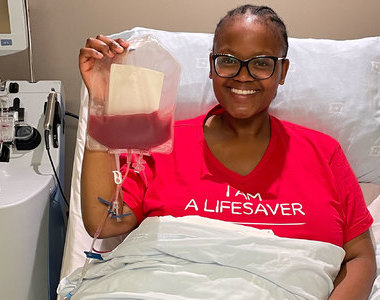‘UCT’s Vision 2030 is attainable’
19 March 2021 | Story Niémah Davids. Photo Supplied. Voice Neliswa Sosibo. Read time 6 min.
“Achieving the University of Cape Town’s (UCT) Vision 2030 is like putting together a million-piece puzzle – it seems challenging and exhausting, but if everyone picks up just one puzzle piece and places it in the correct place, the puzzle will be complete in no time.”
And succeeding at this gigantic task really isn’t rocket science, added Lesego Modutle, a disability advocacy specialist in UCT’s Office for Inclusivity & Change (OIC).
“If each member of the campus community makes a small adjustment towards achieving excellence, transformation and sustainability in their field, we will successfully achieve UCT’s Vision 2030,” she said.
Catalyst for change
Modutle said that UCT has come a long way in recent years, but if it is to reach Vision 2030 successfully, more work should be done. In the coming years, she said, she’d like the UCT community to do three things.
Firstly, they should reflect on the ideologies of race – essential in order to move ahead.
“People need to educate themselves on why the younger generation refuses to be racially classified.”
“People need to educate themselves on why the younger generation refuses to be racially classified. It’s so important to understand that black South Africans were severely disadvantaged in all areas of life,” she said.
Secondly, they need to respect gender and sexual diversity on campus and more broadly in the country and the world at large.
“Why do we want to force people to be who we want them to be? Let everyone be who they are. Let’s all be open to learning about gender fluidity and sexual diversity.”
Third on her list is the need to create an inclusive environment for persons with disabilities.
“Awareness is not enough. Institutions of learning should adopt inclusivity policies and these policies should be implemented across the university. It starts with marketing and communication channels like websites,” Modutle said.
“Are students with disabilities able to access websites? Do admissions processes make concessions for learners who come from special needs schools? These are the questions we need to ask.”
A dream for UCT
Modutle is UCT’s first full-time Sign Language interpreter and has been employed at the university since 2012, after the institution accepted its first Deaf student.
She said that her interest in Sign Language started when she was just a young girl. As she watched the news, she was fascinated by the Sign Language interpreters who moved their hands “frantically” in a box in the bottom right-hand corner of the screen. It piqued her interest, and she remembers wondering how a language could be created using only hand movements.
“I believe in the importance of creating an accessible and inclusive environment for persons with disabilities – it’s my passion.”
She completed her degree in media studies at the University of the Free State and became the first student to graduate with South African Sign Language as a course major.
“I believe in the importance of creating an accessible and inclusive environment for persons with disabilities – it’s my passion. After UCT admitted its first Deaf student, and I got the job, it felt like I was right where I was meant to be,” she said.
Her ultimate dream for UCT as the university works towards attaining Vision 2030 is to start a Sign Language and interpreting department where students and staff can enrol for Sign Language courses.
Modutle shared these views with UCT Vice-Chancellor Professor Mamokgethi Phakeng and other UCT colleagues during a special staff lunch hosted by Professor Phakeng at her official residence, Glenara, recently.
“Sign Language interpreters are few and far between and the Deaf community faces huge challenges when trying to access their basic right to information. A department that addresses this will be filling a huge gap,” Modutle said.
Disrupt and make waves
She encouraged staff to unleash their human potential and to be the change they dream of for UCT. Getting this right means doing more than what the job description requires.
“Bring your own charisma, uniqueness, nerve and talent to disrupt the norms and make waves. Have the guts to go places others would think twice of going to. Push the boundaries and create platforms for those who are silenced and forgotten,” she said.
She urged academics, and professional, administrative support and service (PASS) staff to stop waiting around for their dream job, and to take their role at UCT and use it to their advantage.
“If you’ve dreamt of being a musician in an orchestra, but find that you’re now lecturing an engineering course, write a melody on Maxwell’s equations and use that as a medium to teach your class,” Modutle said.
“You will not only be doing what you love, you would be applying CAST’s Universal Design for Learning model in your classroom, which is an inclusive approach anyway.”
Better together
UCT’s Vision 2030 is attainable, said Modutle. But the next few years will require a collective effort from all staff and students to arrive at this ultimate goal. She urged staff to remember that goal, and to support one another in their efforts to reach it.
“We need to remember that we are striving to achieve a common goal. We can only achieve it if we support and root for [one another]. A team is only as strong as its weakest member, so support colleagues both on and off campus,” she said.
“Together we can get there if we want it badly enough.”
 This work is licensed under a Creative Commons Attribution-NoDerivatives 4.0 International License.
This work is licensed under a Creative Commons Attribution-NoDerivatives 4.0 International License.
Please view the republishing articles page for more information.
Listen to the news
The stories in this selection include an audio recording for your listening convenience.























































































































































































































































































































































































